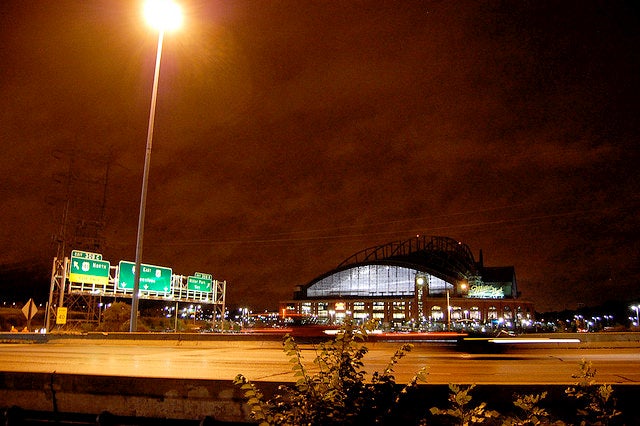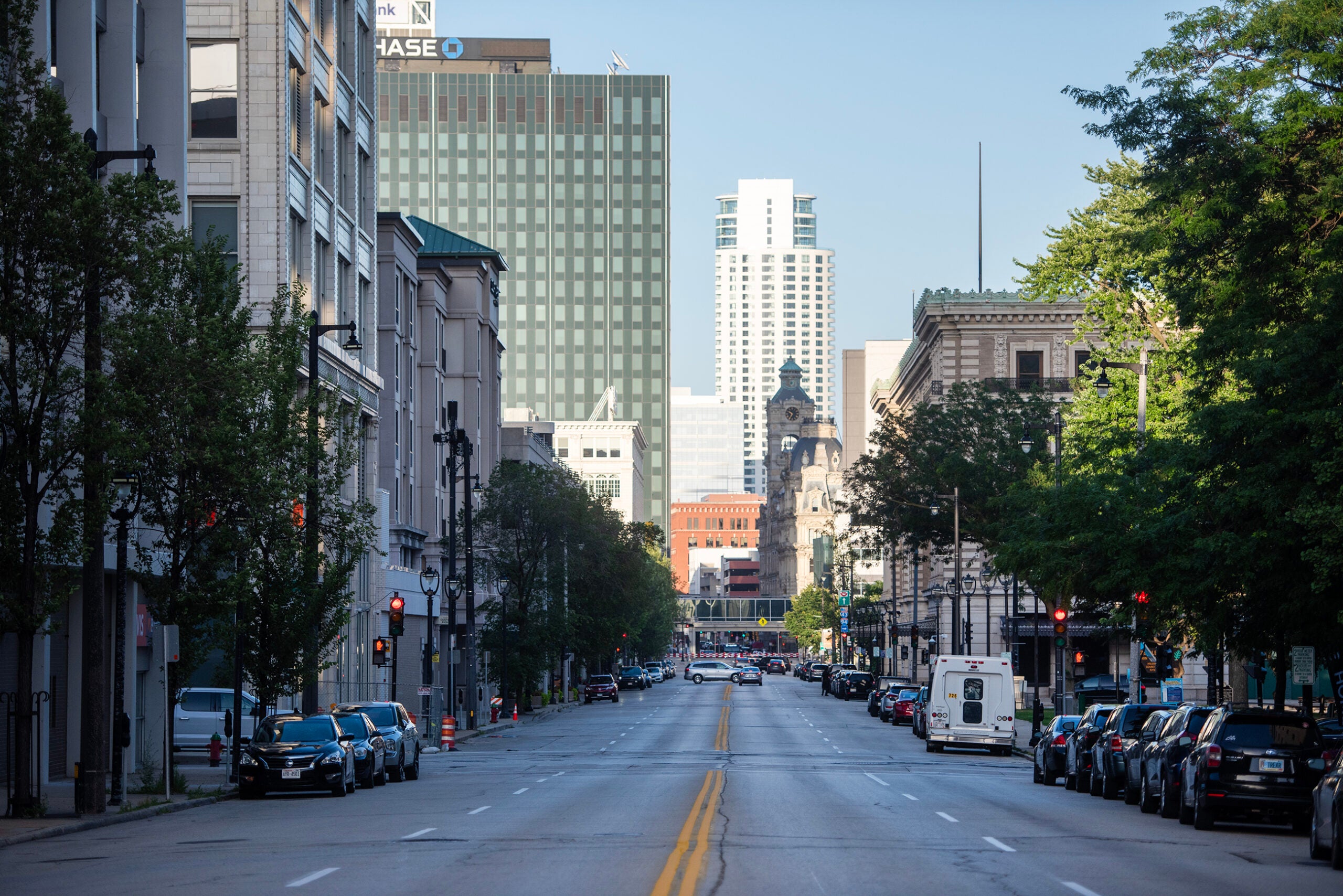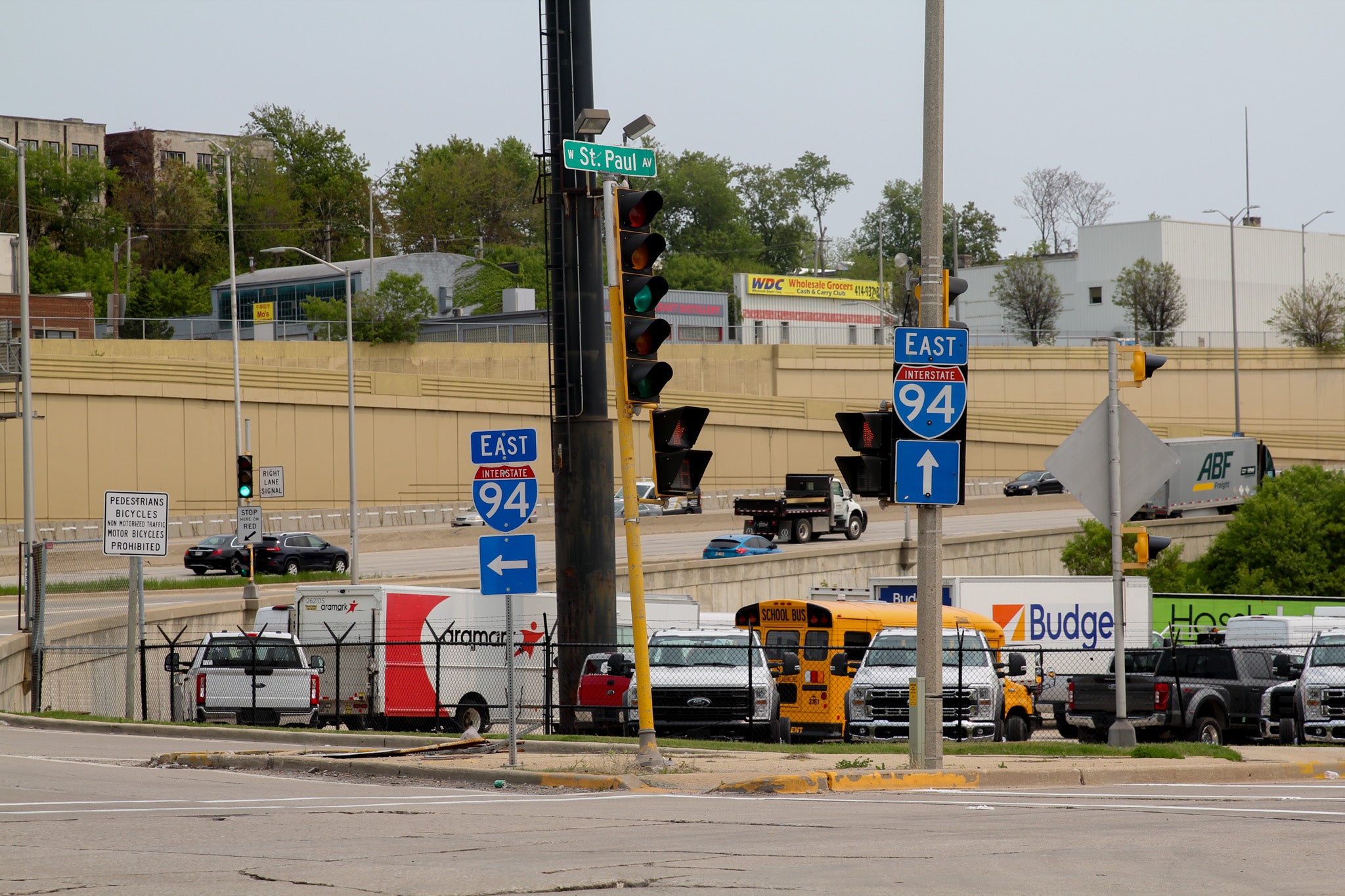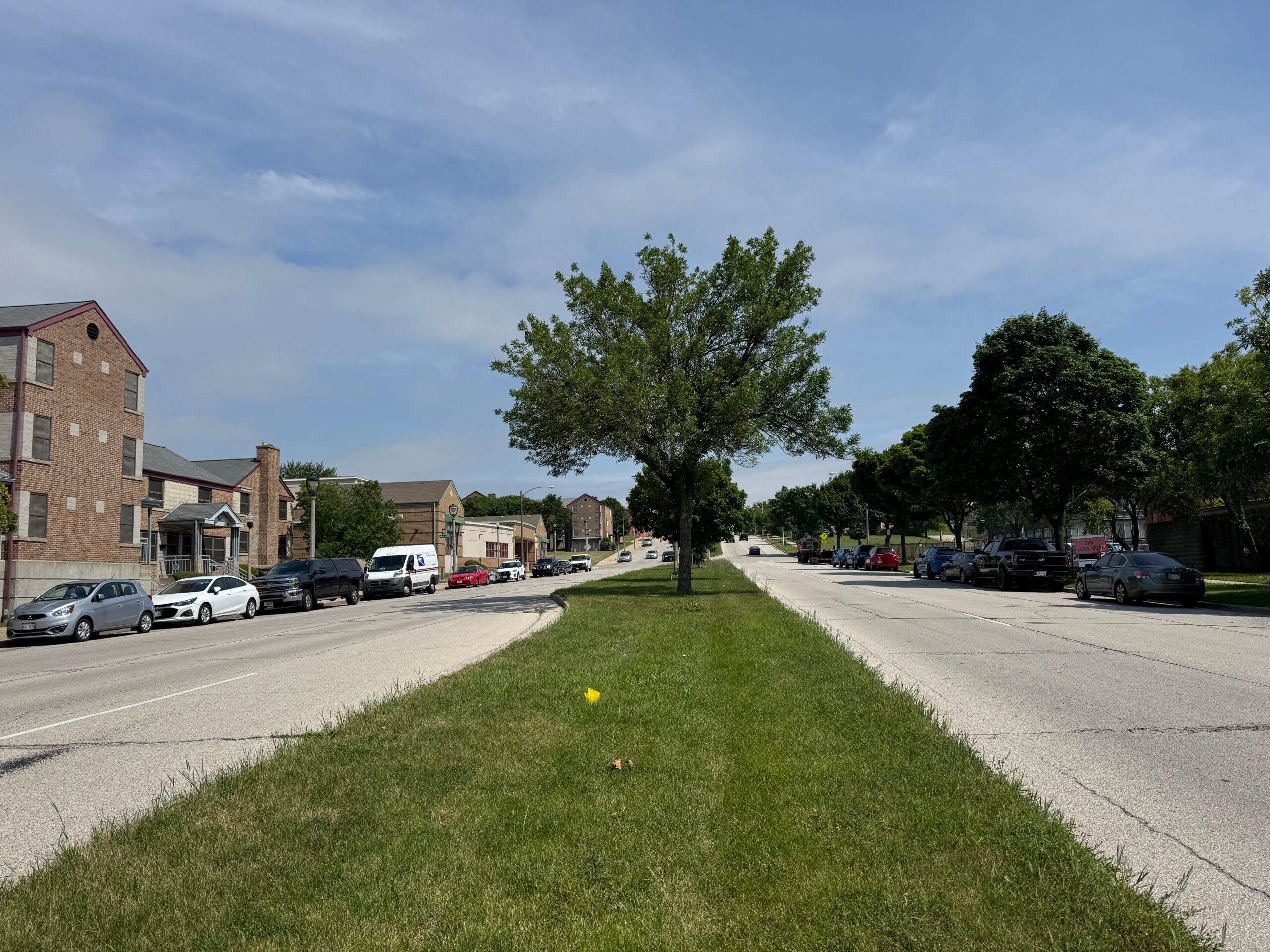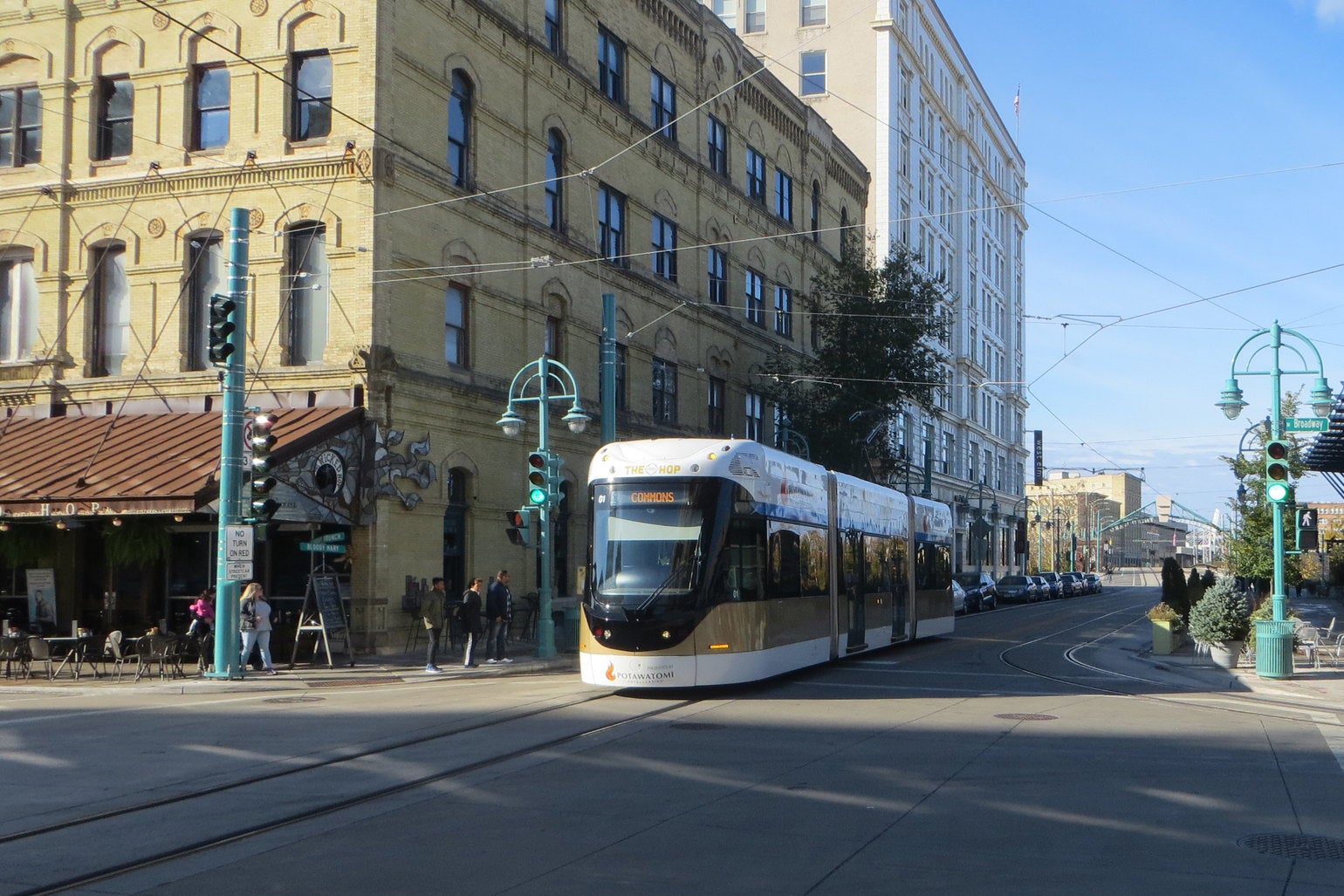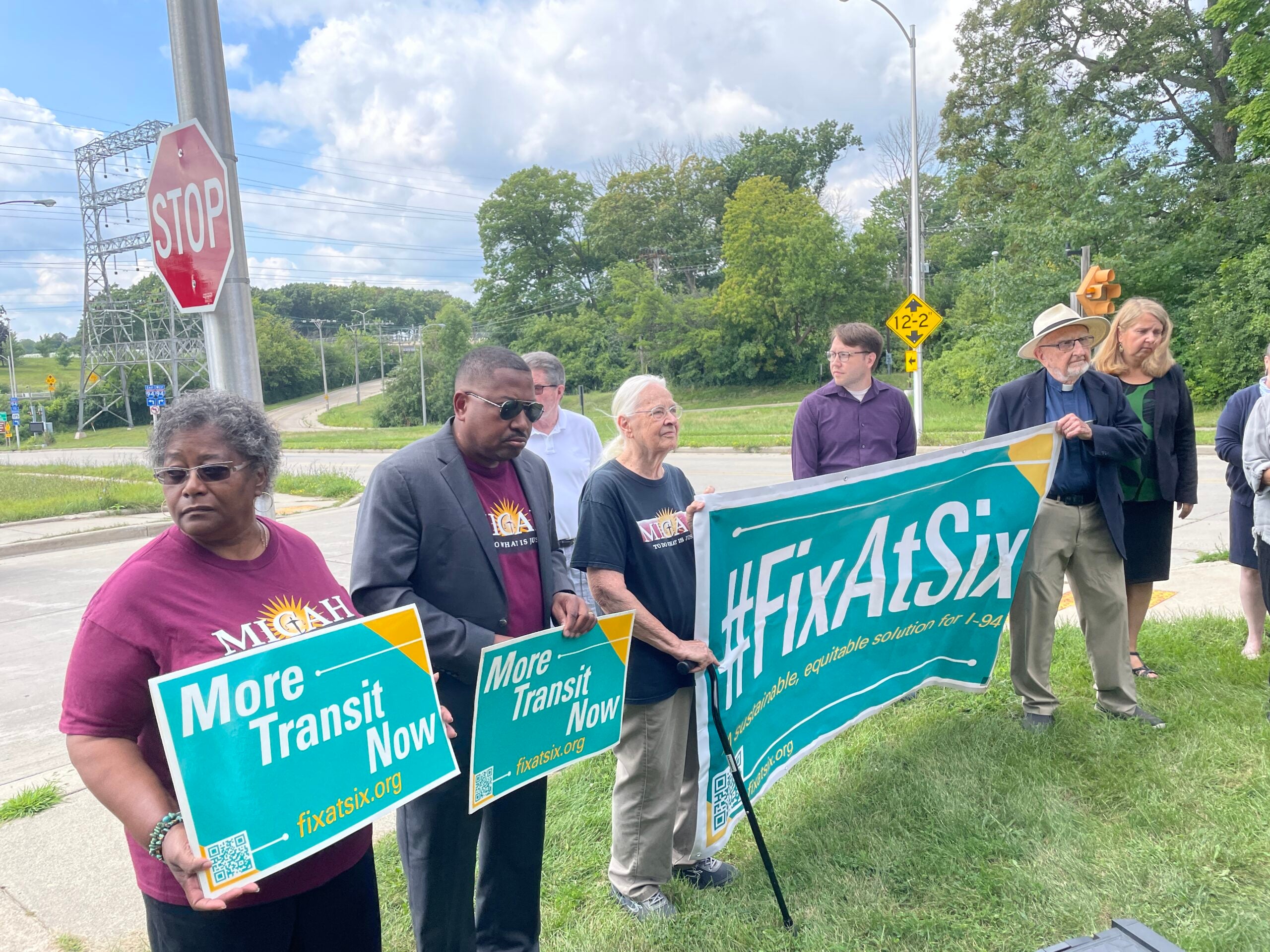The Wisconsin Department of Transportation announced on Tuesday that it has dropped plans for a double-decked freeway segment in Milwaukee.
The DOT drew considerable opposition late last year when it said it was thinking about double-decking part of the Interstate 94 east-west Freeway near Miller Park. That opposition, plus legislators’ concerns about too much borrowing for road projects, has now led the DOT to consider a cheaper alternative: widening the section of I-94 in question from three to four lanes each way. That project would still cost about $850 million.
Transportation Secretary Mark Gottlieb said widening is the wise thing to pursue.
News with a little more humanity
WPR’s “Wisconsin Today” newsletter keeps you connected to the state you love without feeling overwhelmed. No paywall. No agenda. No corporate filter.
“I think the study team did a very careful analysis of current traffic and projected traffic out to the designed year, which is 2040,” said Gottlieb. “We’re building a facility here to last for many decades, and so we don’t want to invest money into something that isn’t going to work.”
The DOT says the proposed widening would not affect graves in nearby cemeteries because the rebuilt lanes would be slightly narrower than current freeway lanes, and would make more use of existing shoulders.
Dropping the double-deck idea saves the state about a quarter-billion dollars. Nevertheless, a coalition of citizen groups says widening is still a bad idea. Peter Skopec of the Wisconsin Public Interest Research Group said the highway expansion is not needed.
“Traffic along this corridor has declined by 8 percent over the last 12 years — and still we’re talking about expanding the highway, and we’re asking Wisconsin taxpayers to pay close to a billion dollars to do that,” said Skopec. “We think the expansion is totally unnecessary. There’s huge community opposition to it.”
Juan Carlos Ruiz of the Cleaner Milwaukee Coalition said that instead of spending $850 million on the Milwaukee freeway, officials should invest in other community needs, like mass transit.
“The expansion for people to get 5 minutes early home, and spend $1 billion on that, that makes sense,” said Ruiz.
Ruiz said the DOT kept the community groups out of its news conference and hasn’t been forthcoming about the its plans. The department, however, says the process has been open and that there will be more chances for community input before a final environmental impact statement is completed this summer.
Construction on the nearly four-mile segment of freeway wouldn’t start until at least 2019. That’s if state lawmakers voting on Gov. Scott Walker’s proposed state budget this spring don’t decide on additional delays.
Wisconsin Public Radio, © Copyright 2026, Board of Regents of the University of Wisconsin System and Wisconsin Educational Communications Board.

